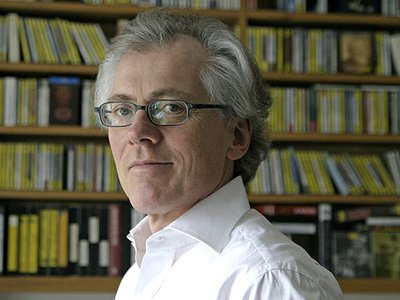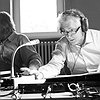What was your first recording-related job - and what or who were your early passions and influences?
As engineer trainee at Deutsche Grammophon's Hannover studio in 1980
What do you personally consider to be the incisive moments in your artistic work and/or career in the field of recording?
Editing La Scala recordings with Abbado and subsequently meeting him in Milan. His producer died and I was asked to edit all the stuff, which was eight CD's worth, that were in the can but unedited. The producer had also been Pollini's and there were two recordings with Pollini also unfinished which I edited. Subsequently both artists asked DG to 'try me out' as recording producer.
How would you personally define your role in the creative process?
A recording producer plays several roles: musical expert and enthusiastic listener without any preconceptions; book-keeper to make sure everything is recorded correctly somewhere; bridge between the artist's concept of sound and what is possible or desirable; animateur when the artist gets fed-up (it is lonely playing in an empty hall); psychologist! Chaser-away of dogs, cars, footballers outside the hall, diplomat with stage-hands, organiser.
What is the scope and what are the limitations of what you are capable of doing?
The scope is endless if there is time enough, normally the single most limiting factor. After all, the artist can take risks that he cannot afford in concert. The limitations are: physical – a singer or trumpeter can only do a certain amount before the quality of the sound becomes affected; and the artist's preparedness and imagination.
In how far do you feel increasing technical education even among amateur musicians has changed this role?
Technical musically you mean...? Young artists are fixated about playing perfectly and because of that often do not dare take interpretative risks.
In which way does the way music sounds change the way it is perceived?
A BIG question. If I play you two identical takes and one is just played louder you will prefer that one. This is a problem because people are used to hearing the high levels of pop recordings. A famous tenor asked me why our mix did not sound as exciting as Freddy Mercury! So we played him a version with a lot of compression at a high level and he liked it … especially in his car. But there was no dynamic range any more which is quite unacceptable for a classical music recording.
A piano or violin if recorded as it would sound from say the 10th row, would become boring after a while without the other stimulus and expectations we have when we are in a concert. We have to be closer than that – which is what the artists want as well. Otherwise the listener will say it is a boring performance almost regardless of what the artist is doing.
How do you see the relative importance of sound and composition?
There are compositions which need to be recorded transparently so that we can understand what is going on, and there are other works that need a big overall sound. The hall we choose often depends on exactly what we are recording. Polyphonic choral singing would be quite out of place if recorded at Abbey Road.
What, to you, are the main goals of recording, editing and mastering? Do you, for example. feel it important that a recording is a reflection of reality or is it by default artifice and therefore subject to its own rules?
It may sound trite, but the main goal has to be to give the listener a satisfying emotional experience. A recording is inherently artificial but has acquired its own rules and reality. Musically, it must appear to reflect a natural performance, even if unnaturally well-played. I feel though, that as producers we must not create a performance which the artist would not be capable of on a perfect night. For example if a singer is not able to sing a phrase in one breath we are not allowed to record the phrase twice with breaths in different places and then cut it into one.
The sound on a CD should suggest reality and once that particular reality is established the listener should not hear any manipulation by the engineer. This reality may have nothing to do with what is heard in a concert. No listener would accept the balance between singers and orchestra that they hear in the opera house.



